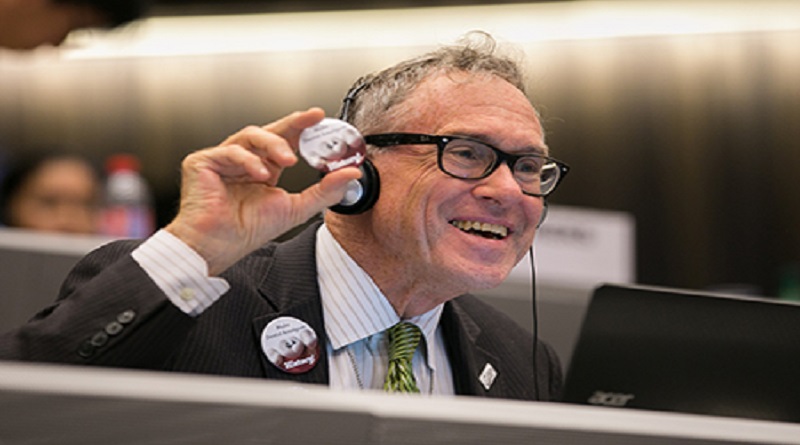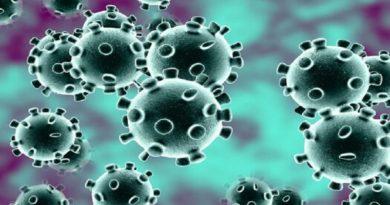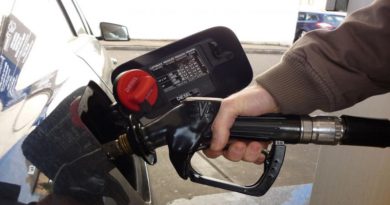Campaigners urge other African countries to ratify Minamata Convention
Campaigners under the aegis of World Alliance for Mercury –Free Dentistry (WAMFD) have underscored the need for African countries that are yet to submit their instrument of ratification, acceptance or approval of accession to the Minamata Convention on mercury to do so to make mercury history in the continent.
As at Sunday 18th August 2019, findings by Ecogreen News online from the Convention web site indicated that 30 African countries out of the 54 countries in the continent have ratified the Convention, 16 have signed but yet to ratify while 8 countries are yet to sign and ratify the Convention.
The countries that have ratified the Convention are Benin, Bostwana, Burkina Faso, Chad, Comoros, Gabon, Gambia, Ghana, Guinea, Guinea Bissau, Lesotho, Mali, Mauritania, Namibia, and Niger.
Others are Nigeria, Rwanda, Republic of the Congo, Sao Tome and Principe, Senegal, Sierra Leone, South Africa, Togo, Uganda, Zambia, Djibouti, Madagascar, Mauritius, Sychelles and Estwatini.
The 16 countries that have signed but yet to ratify the Convention are: Angola, Burundi, Cameroon, Central Africa Rep, Côte d’Ivoire, Kenya, Malawi, Morroco, Sudan , Tanzania, Mozambique, Liberia, Libya, Tunisia, Ethiopia and Zimbabwe.
Similarly, the remaining eight countries that are yet to sign and ratify the Convention are: Algeria, Cabo Verde, Egypt, Equatorial Guinea, Eritrea, Somalia, South Sudan and Congo-Democratic Rep.
Ecogreen News gathered that Cote d ‘Ivoire is making frantic effort to submit her instrument of ratification for the Convention soonest.
Incidentally, an African in the person of David Kapindula from Zambia would serve as President of Minamata Convention on mercury COP3
President, World Alliance for Mercury-Free Dentistry, Charlie Brown, said every African nation has a stake in keeping the West from continuing to send toxic product into their nation and their environment.
Brown noted that if more African countries ratify and become Parties to the Minamata Convention, the continent can lead the world forward at COP3 this November.
“If more African nations ratify and become Parties to the Minamata Convention, the continent can lead the world forward at COP3 this November. Bureau Member Serge Molly of Gabon proposes to put dental amalgam on a par with the other products by adopting a phase out date. Every African nation has a stake in keeping the West from continuing to send this toxic product into their nation and their environment. Presiding at COP3 will be David Kapindula of Zambia, president of the Minamata Convention.
“Wherever I go throughout the continent, interest in mercury-free dentistry for African children and mercury-free dentistry for African young women is sky-high – from Nigeria in the west, to Tunisia in the north, to Uganda in the east, to Zambia in the south, to Cameroun in the central.”
Vice President, Africa of WAMFD, Dominique Bally, said Africa has taken the lead of the ratification process of the Convention for several months, adding that it is the sign that many African countries are concerned with mercury issues.
Bally said, “As you know, mercury is affecting several African countries especially due to ASGM, mercury added products in which we find dental amalgam, mercury measuring devices (thermomethers, spygmomanometers, etc.).
“Ratifying the convention for African countries are more than important since it shows their commitments to address mercury in all the stages of its lifecycle. In the same way, the ratification for Africa countries expresses also their interest to be supported in all activities related to implement the Convention since as party, they could benefit technical and financial assistance to reduce/eliminate mercury emissions and releases polluting the environment and affecting populations’ health. Therefore, we can notice the legal measures already taken at countries’ level”.
Bally, who is championing the campaign to make mercury history in Côte d’Ivoire hinted that country will ratify the Convention before COP3. “On 1st July 2019, the law related to the convention ratification was adopted by the different Commissions of the Parliament. The plenary will take place soon for the adoption of this law so to allow the President of the Republic to ratify it. Before October this year, the process will be finalized.
“To both countries, my message is quite simple: “Ratification of Minamata Convention is a good step, implementing that Convention is the most important. Phase out mercury added products especially in health sector must be the priority for countries. On this note, dental amalgam phase out could be an entry point of African parties and non-Parties to the convention implementation. In the same way, exchanging information on country’s situation is a plus to help in harmonizing regulations. To end, developing a regional approach or project in specific chapters or products of the Convention will allow Africa to show its dedication to kick mercury pollution out of the continent in a short time frame. He stressed”.
Executive Director, Sustainable Research and Action for Environmental Development (SRADev Nigeria) and the Focal Person for WAMFD in Nigeria, Dr. Leslie Adogame said, “From the onset, African governments repeatedly rank mercury phase out in products as one of its priorities. Amongst all nations of the world, African nations have the least financial and technical capacity to manage the environmental and health effects of mercury pollution.
“Secondly, evidence show that Westerners continue to demonstrate lack of respect for African borders; for example, their missionaries bring in amalgam; they sell amalgam, even from Sweden, a country which banned amalgam 10 years ago; they dump toxins. African must stand firm to those who say it’s fine to end mercury pollution in Europe while continually dump into Africa countries”.
The Minamata Convention on Mercury is a global treaty aimed to protect human health and the environment from human induced emissions and releases of mercury and mercury compounds- came into force.
The Convention became legally binding on 16th August 2017, 90 days after it exceeded the threshold of 50 countries that ratified it.
Annually, as much as 9,000 tons of mercury are released into the atmosphere, in water and on land. The largest source of these emissions is artisanal and small-scale gold mining, followed closely by coal combustion, non-ferrous metal production and cement production.
Meanwhile, for any nation to participate as a Party at the coming COP 3 in November, it has to ratify the Convention at least three months before the time. The third Conference of the Parties to the Convention is slated for November 25-30, 2019 in Geneva, Switzerland.
So far, 112 countries out of the 128 countries that signed the Convention have ratified it.




